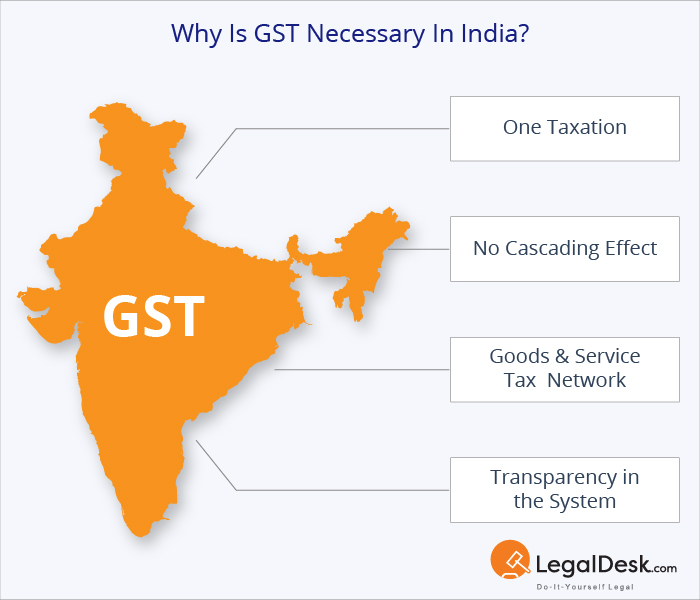The implementation of the Goods and Service Tax is the most significant tax reform yet for India, conceptualised and structured by various Governments from as early as 2000 and implemented by the current NDA government, under the onus of the Finance Minister Arun Jaitley. The proposed GST is expected to streamline the indirect tax regime. Billed as an improvement on the VAT system, a uniform GST is expected to create a seamless national market.
The concept of a single, Uniform Taxation system started being visualized in the Atal Bihari Vajpayee regime, under whom India had just started to diminish trade barriers and promote better trade relations. At that point in time, the Indian Tax Eco-System, upon scrutiny, started to look far too complicated, with each state having its own tax nexus, rules and tax laws in addition to the central tax nexus.
To state an example, one of the taxes that is being subsumed under the State Goods and Service Tax (SGST) is the entertainment tax. This tax is one of the most outdated taxes, dating back to the Pre-Independence era; Historically, before India acquired independence, the British Government imposed heavy taxes on the events of amusements and entertainment, where a large gathering of Indians could have caused rebellion or mutiny. After independence, old enactments continued and there has been no revision or repeal of these acts. Being exclusively reserved as a revenue source for the state governments, some states permit rates as high as 50-60%!
Why Is GST Necessary?
Here’s a pointwise study on why is GST necessary to India –
- To bring the entire Indirect Taxation under One Market.
This would mean that all across India, the taxation rates are uniform for a specific Good/Service; There would be One Common Governing Law that needs to be understood and complied with. This would make a positive proposition for businesses in India in the following ways:
(a) Uniformity of taxation across states – This would promote businesses to transact across state borders and enhance its consumer base.
(b) Convenience of Compliance – It would pave way for easier set up of businesses across state borders since taxation laws would be common across states.
(c) Foreign Business entities would have an easier entry to the Indian market – A large business entity would any day prefer to make its target market a country rather than a state. Complying with the every single state’s taxation laws and tax rates would be monetarily draining and time-consuming and uniformity across borders ensures easier compliance. - To eliminate the Cascading Effect (or) to make a majority of the Goods/Services cost lesser than the current cost.
- The GST is implemented via the Goods and Service Tax Network (GSTN). The GSTN, comprising of robust technical architecture in synergy with the Thought-Process of the Digital Age.A Vital element of the compliance would be that the unique GST Identification Number (GSTIN) has to be seeded for all sales registries/invoices uploaded. This would help in –
(a) Tracking and recording of all monetary transactions of the taxpayer. Thus, evading of taxes would become all the more difficult.
(b) Determining the health of businesses across various sectors of the country, i.e, the sales of all companies across a particular sector can be determined and the actual growth of each sector for the country can be established. - The GSTN has enlisted 34 GST Suvidha Providers for providing a platform through which taxpayers can file their taxes. Also, Application Service Providers in-turn can integrate with these GSPs to provide taxpayers one more route for tax filing. These multiple routes have enabled many businesses to provide much sought-after value additions to taxpayers, most important of which would be accountancy. The Digital Open-Mindedness of the Entire GST System has has ensured transparency in the framework of the system and instilled healthy competition in a new, self-created market by the GST.
Your GST enabler LegalDesk.com is a legal service provider that provides legal services online and on time. With everything at the click of a button away, you can register for GST without having to leave your home or office. If you need to register for GST, the next roll out is on the 25th of June, and GST comes into full effect on the 1st of July. So, log on and register as soon as possible.


